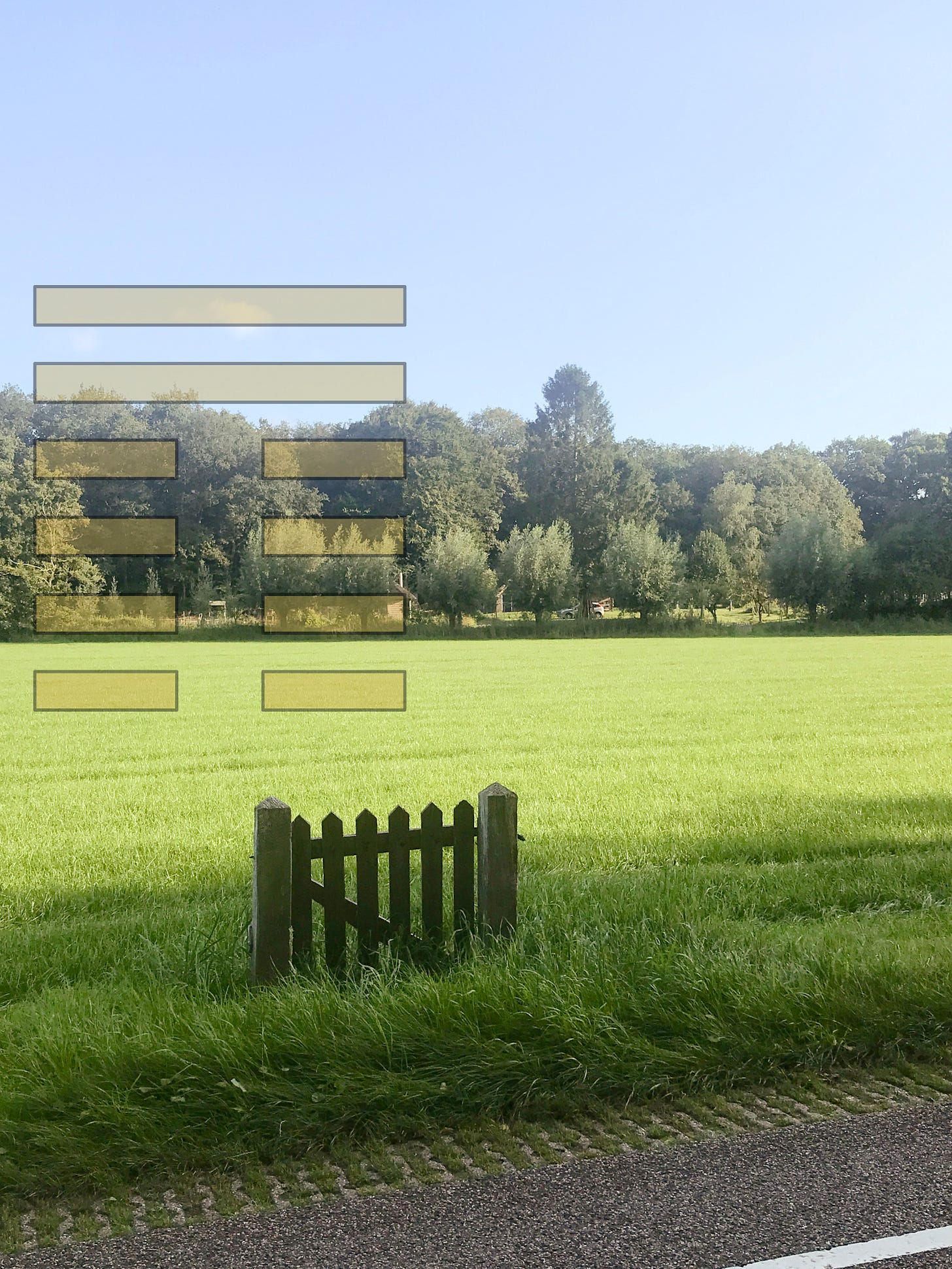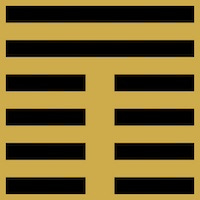The text of this post has been translated from Dutch to English with DeepL. It will be manually edited and streamlined soon.
THE IMAGE of the two trigrams: above Wind, below Earth. A gentle breeze blowing across the earth. It touches everything on the earth, but leaves things as they are. Wind over Earth: the image of Observing. Observing things as they are and not as you would like them to be.
THE IMAGE of the whole hexagram: an open gate. A gate that offers a view of reality and an opportunity to perceive. A gate, a window, a keyhole, a gap, a crack in the wall, an opened eye, a viewer, a doorbell camera, a microscope, a periscope. An opening: the image Observing.
The opened gate in the oppressive wall of a medieval city offered the citizen a view of the outside world. A road, a farm, groves, a village. The traveller or countryman looking in through the gate from outside saw tall narrow houses, streets and alleys, a market square, a city palace. Through the gate, the outer and inner worlds met.
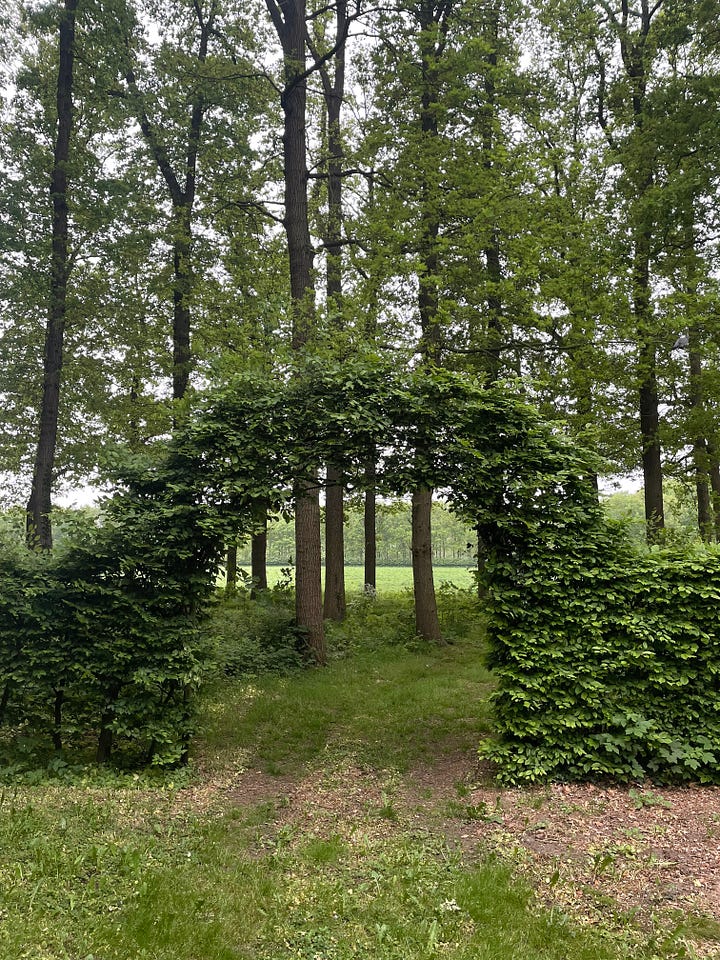
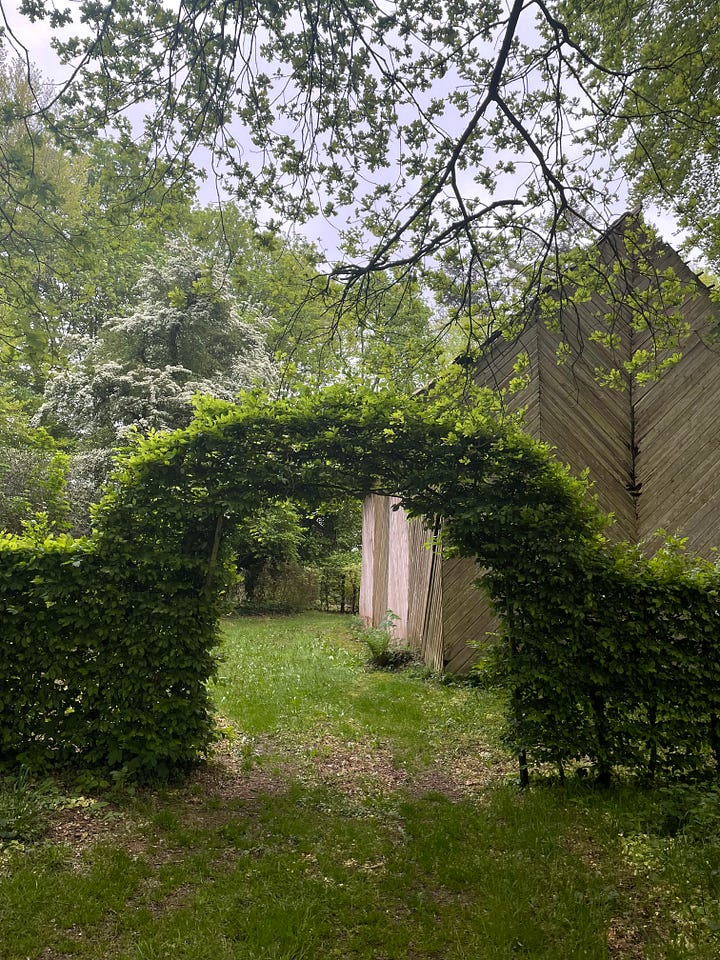
In the modern city, the shielding of a wide-eyed view has only been increased by endless stone and structures. The eyes find no horizon and rarely emerge from the contraction of looking at what is nearby. The lack of free distance leads to a collective myopia. Letters - on mobile and tablet, in newspapers and books, billboards and road signs - lure the eyes and don't let them go.
Those who want to see the sky and clouds during the day in the big city have to look straight up with their head in their neck, only to see a modest strip of sky. Those looking for starry skies at night: in vain - they are faded by the hellish lighting. The smartphone seems to offer a solution. From even the most confined space, it lets you see right through walls, right through any barrier and extends the view beyond the horizon. He is a true window on the world. A pity, though, that peering eyes still don't get beyond the screen - the myopic fixation remains.
A dead battery, wifi failure, a cracked screen, an overturned glass of water - liberation from the insidious mobile window is always near. After initial anger and confusion, you will see again with your own eyes. Long live boredom, long live carefree getting lost.
Ring the bells that still can ring
Forget your perfect offering
There is a crack, a crack in everything
That's how the light gets in
Leonard Cohen
Even a small opening can provide enough room for big discoveries.
Carter: 'I made the hole a little bigger, stuck the candle in with Lord Carnarvon, Evelyn and Callender waiting in suspense beside me. At first I couldn't see anything because of the warm air coming out of the room, which caused the candle to flicker. As my eyes got used to the light, details emerged from the mist: strange animals, statues and gold, everywhere the glint of gold.' Lord Carnarvon asks Carter if he can see anything. He replies: 'Yes, beautiful things'.
Dialogue between Howard Carter and Lord Carnarvon during the opening of Tutanchamon's tomb.
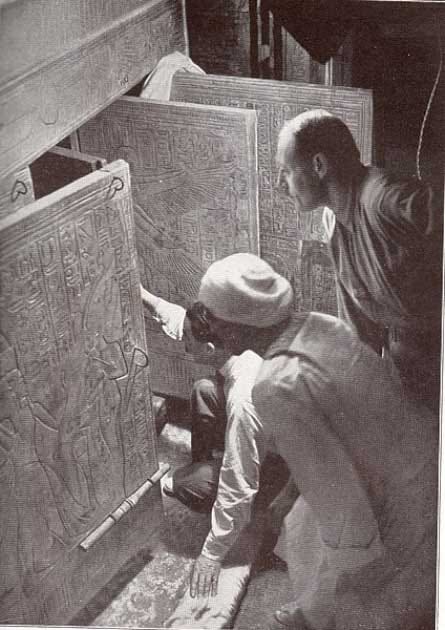
Observing without being seen yourself is called spying. The viewer is an outsider and stays out of harm's way. First there was the medieval loophole, which let you peer at the enemy unseen. The loophole evolved into the peephole, for sneaking a peek at unwanted visitors. And not long after, we are suddenly completely surrounded by spying cameras: outside the front door, front and back of the smartphone, in the supermarket and down the streets, in the underground, and then all the cameras watching the other camera’s. Who is watching whom?
Not just looking at the object
but sitting in it
out of courtesy
To look back. Back and forth.
Like two people unwilling
to turn their eyes down
to each other
K Schippers

